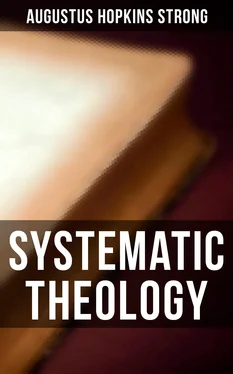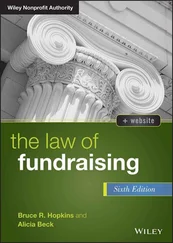B. That many of the truths thus revealed are too indefinite to constitute the material for science, because they belong to the region of the feelings, because they are beyond our full understanding, or because they are destitute of orderly arrangement.
We reply:
(a) Theology has to do with subjective feelings only as they can be defined, and shown to be effects of objective truth upon the mind. They are not more obscure than are the facts of morals or of psychology, and the same objection which would exclude such feelings from theology would make these latter sciences impossible.
See Jacobi and Schleiermacher, who regard theology as a mere account of devout Christian feelings, the grounding of which in objective historical facts is a matter of comparative indifference (Hagenbach, Hist. Doctrine, 2:401–403). Schleiermacher therefore called his system of theology “Der Christliche Glaube,” and many since his time have called their systems by the name of “Glaubenslehre.” Ritschl's “value-judgments,”in like manner, render theology a merely subjective science, if any subjective science is possible. Kaftan improves upon Ritschl, by granting that we know, not only Christian feelings, but also Christian facts. Theology is the science of God, and not simply the science of faith. Allied to the view already mentioned is that of Feuerbach, to whom religion is a matter of subjective fancy; and that of Tyndall, who would remit theology to the region of vague feeling and aspiration, but would exclude it from the realm of science; see Feuerbach, Essence of Christianity, translated by Marian Evans (George Eliot); also Tyndall, Belfast Address.
(b) Those facts of revelation which are beyond our full understanding may, like the nebular hypothesis in astronomy, the atomic theory in chemistry, or the doctrine of evolution in biology, furnish a principle of union between great classes of other facts otherwise irreconcilable. We may define our concepts of God, and even of the Trinity, at least sufficiently to distinguish them from all other concepts; and whatever difficulty may encumber the putting of them into language only shows the importance of attempting it and the value of even an approximate success.
Horace Bushnell: “Theology can never be a science, on account of the infirmities of language.” But this principle would render void both ethical and political science. Fisher, Nat. and Meth. of Revelation, 145—“Hume and Gibbon refer to faith as something too sacred to rest on proof. Thus religious beliefs are made to hang in mid-air, without any support. But the foundation of these beliefs is no less solid for the reason that empirical tests are not applicable to them. The data on which they rest are real, and the inferences from the data are fairly drawn.” Hodgson indeed pours contempt on the whole intuitional method by saying: “Whatever you are totally ignorant of, assert to be the explanation of everything else!” Yet he would probably grant that he begins his investigations by assuming his own existence. The doctrine of the Trinity is not wholly comprehensible by us, and we accept it at the first upon the testimony of Scripture; the full proof of it is found in the fact that each successive doctrine of theology is bound up with it, and with it stands or falls. The Trinity is rational because it explains Christian experience as well as Christian doctrine.
(c) Even though there were no orderly arrangement of these facts, either in nature or in Scripture, an accurate systematizing of them by the human mind would not therefore be proved impossible, unless a principle were assumed which would show all physical science to be equally impossible. Astronomy and geology are constructed by putting together multitudinous facts which at first sight seem to have no order. So with theology. And yet, although revelation does not present to us a dogmatic system ready-made, a dogmatic system is not only implicitly contained therein, but parts of the system are wrought out in the epistles of the New Testament, as for example in Rom. 5:12–19; 1 Cor. 15:3, 4; 8:6; 1 Tim. 3:16; Heb. 6:1, 2.
We may illustrate the construction of theology from the dissected map, two pieces of which a father puts together, leaving his child to put together the rest. Or we may illustrate from the physical universe, which to the unthinking reveals little of its order. “Nature makes no fences.” One thing seems to glide into another. It is man's business to distinguish and classify and combine. Origen: “God gives us truth in single threads, which we must weave into a finished texture.” Andrew Fuller said of the doctrines of theology that “they are united together like chain-shot, so that, whichever one enters the heart, the others must certainly follow.” George Herbert: “Oh that I knew how all thy lights combine, And the configuration of their glory; Seeing not only how each verse doth shine, But all the constellations of the story!”
Scripture hints at the possibilities of combination, in Rom. 5:12–19 , with its grouping of the facts of sin and salvation about the two persons, Adam and Christ; in Rom. 4:24, 25 , with its linking of the resurrection of Christ and our justification; in 1 Cor. 3:6 , with its indication of the relations between the Father and Christ; in 1 Tim. 3:16 , with its poetical summary of the facts of redemption (see Commentaries of DeWette, Meyer, Fairbairn); in Heb. 6:1, 2 , with its statement of the first principles of the Christian faith. God's furnishing of concrete facts in theology, which we ourselves are left to systematize, is in complete accordance with his method of procedure with regard to the development of other sciences. See Martineau, Essays, 1:29, 40; Am. Theol. Rev., 1859:101–126—art. on the Idea, Sources and Uses of Christian Theology.
IV. Necessity of Theology.
Table of Contents
The necessity of theology has its grounds:
(a) In the organizing instinct of the human mind. This organizing principle is a part of our constitution. The mind cannot endure confusion or apparent contradiction in known facts. The tendency to harmonize and unify its knowledge appears as soon as the mind becomes reflective; just in proportion to its endowments and culture does the impulse to systematize and formulate increase. This is true of all departments of human inquiry, but it is peculiarly true of our knowledge of God. Since the truth with regard to God is the most important of all, theology meets the deepest want of man's rational nature. Theology is a rational necessity. If all existing theological systems were destroyed to-day, new systems would rise to-morrow. So inevitable is the operation of this law, that those who most decry theology show nevertheless that they have made a theology for themselves, and often one sufficiently meagre and blundering. Hostility to theology, where it does not originate in mistaken fears for the corruption of God's truth or in a naturally illogical structure of mind, often proceeds from a license of speculation which cannot brook the restraints of a complete Scriptural system.
President E. G. Robinson: “Every man has as much theology as he can hold.” Consciously or unconsciously, we philosophize, as naturally as we speak prose. “Se moquer de la philosophie c'est vraiment philosopher.” Gore, Incarnation, 21—“Christianity became metaphysical, only because man is rational. This rationality means that he must attempt ‘to give account of things,’ as Plato said, ‘because he was a man, not merely because he was a Greek.’ ” Men often denounce systematic theology, while they extol the sciences of matter. Has God then left only the facts with regard to himself in so unrelated a state that man cannot put them together? All other sciences are valuable only as they contain or promote the knowledge of God. If it is praiseworthy to classify beetles, one science may be allowed to reason concerning God and the soul. In speaking of Schelling, Royce, Spirit of Modern Philosophy, 173, satirically exhorts us: “Trust your genius; follow your noble heart; change your doctrine whenever your heart changes, and change your heart often—such is the practical creed of the romanticists.” Ritchie, Darwin and Hegel, 3—“Just those persons who disclaim metaphysics are sometimes most apt to be infected with the disease they profess to abhor—and not to know when they have it.” See Shedd, Discourses and Essays, 27–52; Murphy, Scientific Bases of Faith, 195–199.
Читать дальше












